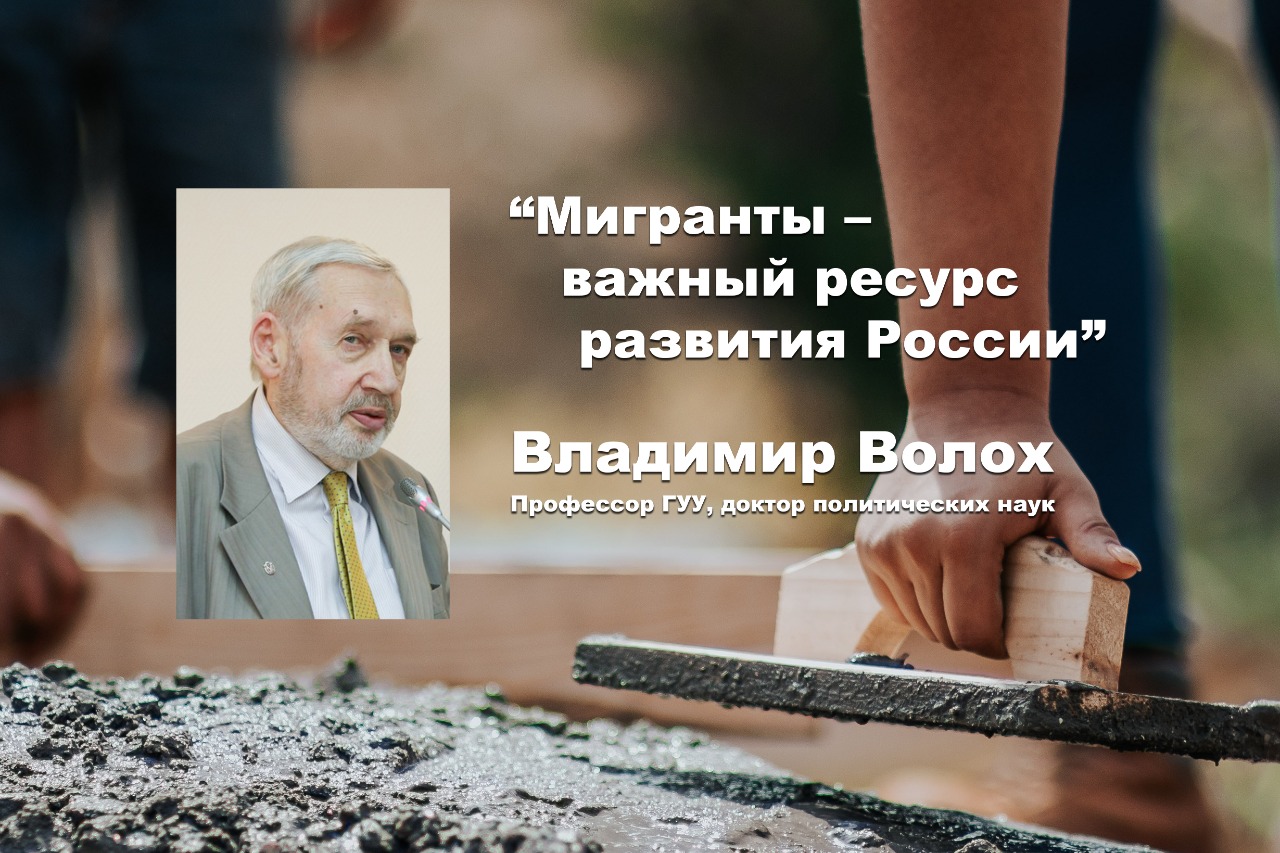
Vladimir Volokh: Migrants as an important resource of Russia’s development
Russian epidemiological situation has not only taken a toll on the national economy and the welfare of citizens but also pushed the country’s migrants to the wall, leaving them with no means of support. Professor of the State University of Management Vladimir Volokh talks about the potential consequences of the crisis for labour migration.
Professor of the SUM Department of Public Administration and Political Technologies, Honoured Worker of the Federal Migration Service, Doctor of Political Sciences Vladimir Volokh has presented a report at the International Online Seminar ‘Labour Migration from Central Asia in Times of Crisis’. Moderator: Andrey Bolshakov, Director of research programmes of the Central Asia Research Institute, Head of Conflict Resolution Studies Department of the Institute of Social and Philosophical Sciences and Mass Communications under the Kazan Federal University, Doctor of Political Sciences.
Today the topic of labour migration is a pressing issue. The pandemic and the economic crisis have had a negative effect on the lives of foreign citizens who came to Russia in search of a job. This is especially true for immigrants from Asian countries of the CIS who do not require visas to come to Russia. Experts estimate that approximately 10 to 12 million immigrants have been unable to leave for their home countries, having lost their sources of income. In Moscow alone, around 1.5 million people found themselves struggling financially, without any means to purchase essential goods or pay their rent. Those who are still managing to scrape by live in crowded flats with no access to medical services.
National government has solved some of the immigrants’ problems by extending the period of validity of regulatory documents and permits. But still, many pressing issues remain unresolved. The atmosphere in the society is becoming more troubled. More and more Russian citizens are starting to view immigrants as competitors who are taking their jobs, or as potential lawbreakers. However, statistics of the Russian Ministry of Internal Affairs show that the number of crimes committed by foreign citizens has not increased.
In his report, Vladimir Volokh emphasised that according to the State Migration Policy Concept of the Russian Federation for 2019–2025 labour migration is considered an important resource for the country’s development. It’s important not to lose this resource and to conduct a well-thought-out migration policy in the best interests of Russia, obviously responding to any illegal actions.
Professor also believes it’s necessary to extend Executive Order of the President of Russian Federation No. 274 dated 18 April 2020, ‘On Measures to Regulate the Legal Status of Foreign Nationals and Stateless Persons in Connection with the Threat of the Further Spread of the Novel Coronavirus Infection (COVID-19)’. According to the current Executive Order, the period until 15 June is not included in the period of duration of certain foreign nationals’ documents. Since the epidemiological situation is unlikely to go back to normal after 15 June, it seems reasonable to extend the document at this point.
Moreover, support measures should be put in place for foreign citizens who have lost their jobs. Their families require social support. Their children need to be able to go to schools and kindergartens. We need to increase the liability of employers for the foreign workers they hire. It is time to perfect and to start actively using organised recruitment of foreign labour force. Here, according to Vladimir Volokh, the country could make use of private employment agencies who have the capacity to efficiently distribute the workforce between different regions, industries and companies.
All of these matters need to be addressed by the national government. Moreover, they should also be discussed by the CIS Executive Committee and the Eurasian Economic Union to open the borders for foreign nationals to return to their home countries and to offer them financial and other kinds of support, according to the professor. The national government needs to work in collaboration with citizens on all matters related to labour migration.
The full recording of the International Seminar is available on YouTube at the link.
Subscribe to our Telegram newsletter!
Подпишись на тг-канал "Наш ГУУ" Дата публикации: 26.05.2020
Дата публикации: 26.05.2020


